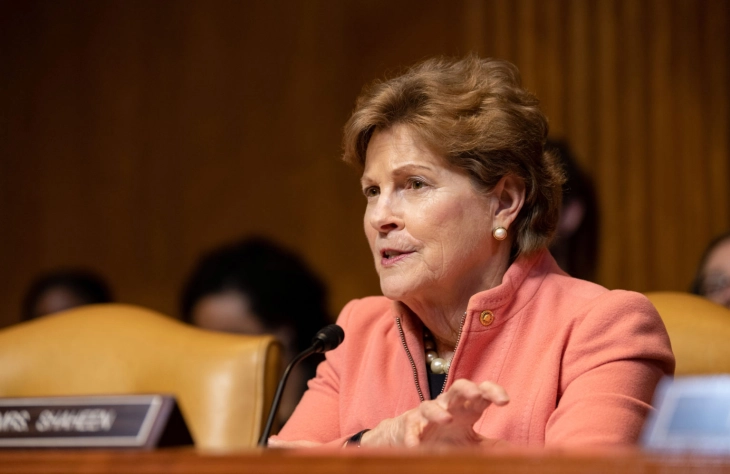U.S. recognizes languages of Western Balkans, states new bill on support to region

Washington, 15 August 2022 (MIA) – In addition to rooting out corruption, the new bipartisan legislation that aims to support Western Balkan countries, which was introduces by a group of U.S. Senators last week, also states that the United States should continue to support the cultural heritage, and recognize the languages of the Western Balkans.
Commenting on the new bipartisan act on the region, U.S. Senator Jeanne Shaheen, Chair of the Senate Subcommittee on Europe and Regional Security Cooperation, told Voice of America that the U.S. Secretary of State will be able to provide technical assistance for each country in the Western Balkans to develop a national anti-corruption strategy. “Dealing with corruption is a very important piece of that. And what the legislation does is to empower the Secretary of State to provide technical assistance to countries that are looking for help in addressing their corruption challenges,” said Shaheen. In terms of the part of the new legislation regarding the languages and how she views the fact that Bulgaria denies the existence of the Macedonian language, Shaheen said “I recognize again that there are longstanding historic differences among ethnic groups in the region, among countries in the region.” “As we look at how we move forward into the future, I think it’s important to try and resolve some of those longstanding challenges that have existed, just as we saw Greece and North Macedonia finally resolve their differences around their name and what that meant for the cultures in both countries. We need to see more of those kinds of compromises that allow countries to move forward and focus on the future rather than being stuck in the past,” Shaheen said. According to her, Balkan leaders should focus on integration in the European Union, and not on promoting conflict. “When we talked to the people on the trip at the end of April, and every time I’ve been in the region in the past, I’ve heard from the citizens in those countries that they want peace. They want stability, they want an end to the conflict. They want to have opportunities for themselves and their families. And my message to the Western Balkan leaders is to think about what their citizens want. Think about the future and what is good for your country. The way forward is looking towards democracy, looking towards integration with the European Union, with the West, and not by continuing to promote the conflict that was so disastrous for their citizens in the past,” says Shaheen. She stressed that renewing the focus on democratic progress is particularly important at a time of ethnic tensions and efforts by Russia to stir up conflict in the region. “As Russia looks at where they might want to go after Ukraine, certainly the Western Balkans are one of those places, and that’s why the war in Ukraine is so critical. As we think about how we make sure we do everything possible to support Ukraine and its efforts against Russia’s brutal unprovoked war, I can’t imagine that anyone anywhere in the world, but particularly in Europe and in the Western Balkans, is watching what’s happening in Ukraine thinking that they would like to have Russia come in and do that in their countries,” Shaheen said. She adds that the new bill aims to ensure economic progress and encourage trade in the Western Balkans, not only with the United States, but with Europe and neighboring countries, as well as create an environment with employment opportunities for young people.






